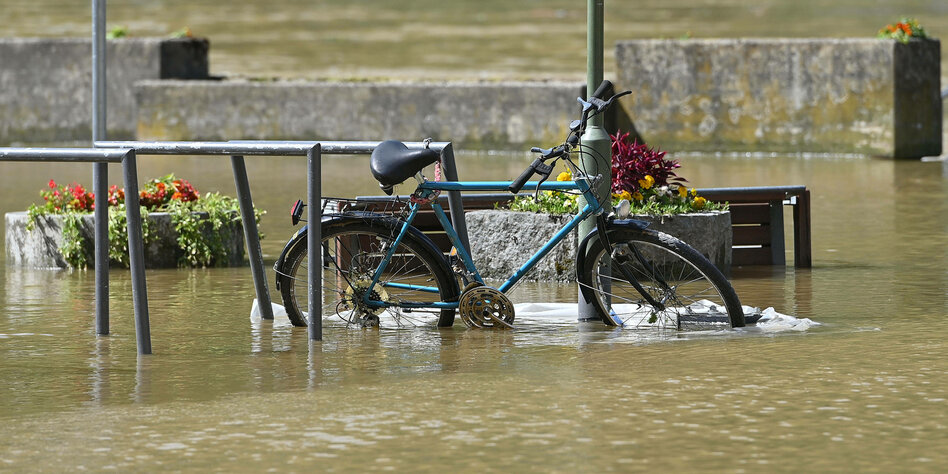We should adapt to climate change. As if it had fallen on us like a natural disaster. As if there were no human culprits.

Flooded promenade in the old town of Passau Photo: Frank Hoermann/Sven Simon/imago
You don't have to have an “authority problem” to get angry when someone says, “Follow up!”, but tolerant people may find it easier to ignore doubts about the required behavior change. On the other hand, those who have difficulties with authoritarian guidelines see less the advantages of adaptation than the contradictions that accompany it.
I'm one of those people whose warning lights go on when someone talks about adapting. Maybe I'm just someone who flirts with the fact that it's that way. Be that as it may, when I hear adaptation, and these days I often hear it in the “climate adaptation” version, my throat tightens, for several reasons.
– Because this adjustment promises a false sense of security.
– Because the real culprit, humans, is no longer named. Whoever caused something bad should take responsibility for it.
– Because the adaptation mantra ignores the fact that we cannot adapt as fast as the earth warms.
– Because the idea that the climate crisis can be solved through adaptation sneaks into our thinking in a manipulative way. If you adapt, you swim with it. So learn to swim!
– And because I see that it is a lie. The lie about adaptation: The main thing is to adapt, then everything will be fine.
No, nothing will be okay.

This text comes from the Laborable day. Our left-wing weekly! Every week, wochentaz is about the world as it is and as it could be. A left-wing weekly with a voice, attitude and a special vision of the world. New every Saturday on newsstands and of course by subscription.
Politicians who talk about climate adaptation want to point out that the consequences of global warming can still be controlled. They say that adaptation to climate change is now necessary. But in doing so they are putting the cart before the horse. The self-proclaimed “climate chancellor” is at the forefront.
We need radical climate protection
A lot of money is being spent on the adjustment. For flood protection. For forest conversion. For water dispensers in cities and cold storage rooms around the world. What politicians are silent: that what we need most is radical climate protection. But adaptation is the cost of decades of policy failures when it comes to climate protection. And the adjustments that will have to be made in thirty years and that will consume even more money are today's failures.
Climate adaptation is an idea born out of helplessness in the face of epidemic inaction. If you were told that we have to radically change course to limit global warming, until then we have to make adjustments to see where we are left, I would agree. But almost all politicians do not want to tell the truth to the population. For fear that those who intentionally lie about the climate crisis and spin the science will receive more approval. They think that is how they maintain control. Sure, if the truth is unpleasant, who wants to hear it? But that is no reason not to tell the truth and lull the population into thinking that adjustments need to be made.
The development of the last warm period lasted 10,000 years. People and nature had a little more time than now to become resistant to heat, drought and floods, i.e. to adapt. Now it is only 100 years. The DNA of not even a blade of grass can match that.
“The global climate crisis,” says the website of the Federal Ministry of the Environment, “will have far-reaching consequences for the environment, nature, the economy and health. What is necessary is a preventive policy of adaptation measures.” The accompanying explanatory film shows higher river beds, green facades, a factory with a wind turbine, awnings and a water dispenser. Everything is so nice.
What politicians today sell as adaptation is, at best, first aid. Everything that would have to be done after first aid, open heart surgery, is omitted. Prevention looks different.
